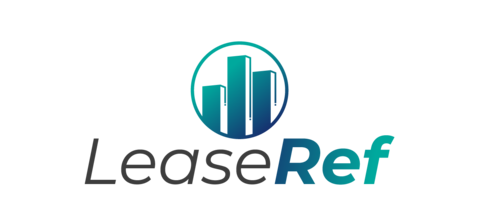Are you a business owner or entrepreneur looking to rent a commercial property for your venture? If so, understanding the different types of commercial real estate (CRE) leases is crucial to making informed decisions and negotiating favorable terms. In this blog post, we will explore the various types of CRE leases, diving into both common and uncommon lease structures. If you need to reference some of the jargon here, don’t forget to reference our glossary of CRE terms here.
Common Types of CRE Leases
Gross Lease (Full-Service Lease)
Imagine a small marketing agency, Creative Minds, that has just found the perfect office space in a multi-tenant building downtown. The owner, Jane, is thrilled to learn that the lease is a gross lease, meaning she only needs to worry about paying a fixed rent while the landlord covers all operating expenses, including property taxes, insurance, and maintenance. This arrangement allows Jane to focus on her growing business without getting bogged down by additional property costs.
With a gross lease, you only need to worry about paying a fixed rent and leaving the rest to the landlord. That’s what a gross lease, also known as a full-service lease, offers. Typically used for multi-tenant office buildings, this lease structure requires the tenant to pay a fixed rent while the landlord covers all operating expenses, including property taxes, insurance, and maintenance.
Net Lease
If you prefer a more customized lease structure, a net lease might be the way to go. In this type of lease, the tenant pays a base rent plus some or all of the property’s operating expenses. Net leases can be further divided into three subcategories:
- Single Net Lease (N Lease): Imagine paying base rent and also taking care of property taxes. That’s what a single net lease entails.
- Double Net Lease (NN Lease): Feeling a bit more responsible? With a double net lease, you’ll pay base rent, property taxes, and insurance costs.
- Triple Net Lease (NNN Lease): The most comprehensive of the net leases, a triple net lease requires the tenant to pay base rent, property taxes, insurance, and maintenance costs. This type of lease is common for standalone commercial properties or retail spaces.
Modified Gross Lease (Modified Net Lease)
Suppose Alice, who runs a small accounting firm, leases an office suite in a professional building under a modified gross lease. She pays a base rent and shares some operating expenses with her landlord, such as utilities and common area maintenance. This type of lease offers Alice a balance between cost predictability and a fair distribution of property expenses, making it an ideal choice for her business.
Can’t decide between a gross lease and a net lease? A modified gross lease, also known as a modified net lease, offers a middle ground. In this lease structure, the tenant pays a base rent, and some operating expenses are shared between the tenant and the landlord. The specifics of which expenses are shared and in what proportions can vary depending on the lease agreement. This type of lease is often used for office and industrial properties.
Uncommon Types of CRE Leases
Percentage Lease
Looking for a lease that ties your rent to your business performance? A percentage lease might be the answer. In this less common lease structure, the tenant pays a base rent plus a percentage of their gross revenue. This type of lease can be found in some retail spaces or shopping centers, offering a unique arrangement for both landlords and tenants.
Picture a boutique clothing store, Fashion Forward, in a trendy shopping center. The owner, Emily, has negotiated a percentage lease, paying a base rent plus a percentage of her store’s gross revenue. This lease structure allows Emily to benefit from lower rent during slower months and aligns her rent payments with the store’s overall performance.
Ground Lease
Ever thought of leasing land but owning the building on the property? A ground lease makes that possible. In this uncommon lease agreement, the tenant leases land from the landlord but owns the building or improvements on the property. In a ground lease, the tenant is responsible for all property expenses, and the lease term is often long-term, lasting several decades.
Imagine a hotel chain that decides to build a new property on a prime piece of land near the airport. The hotel chain enters into a ground lease with the landowner, leasing the land but owning the hotel building itself. This long-term lease agreement allows the hotel chain to control the property and its improvements while paying rent for the land usage.
Indexed Lease
Worried about market fluctuations affecting your lease terms? An indexed lease could be the solution. This less common lease adjusts the rent based on a specific economic indicator, such as the Consumer Price Index (CPI) or other inflation measures. The goal of an indexed lease is to protect both the landlord and the tenant from significant changes in market conditions over time. Indexed leases might be found in some long-term lease agreements, offering an adaptable approach to rent adjustments.
Think of a medical practice that signs a long-term lease for office space in a growing community. The practice opts for an indexed lease, which adjusts the rent based on a specific economic indicator, such as the Consumer Price Index (CPI). As the market conditions change over time, the rent will be adjusted accordingly, protecting both the medical practice and the landlord from unexpected fluctuations in rent. This lease arrangement provides stability for the practice while ensuring a fair rent for the landlord.
Whether you need a straightforward gross lease, a more tailored net lease, or an uncommon lease structure like a percentage or ground lease, there’s an option out there to suit your needs. Keep these lease types in mind as you work through the leasing process, and you’ll be well on your way to securing the ideal property for your venture.


![The Role of Estoppel Certificates in CRE [TEMPLATE]](https://www.leaseref.com/wp-content/uploads/2024/11/Three-people-looking-over-estoppel-certificate_500X1000.jpg)
